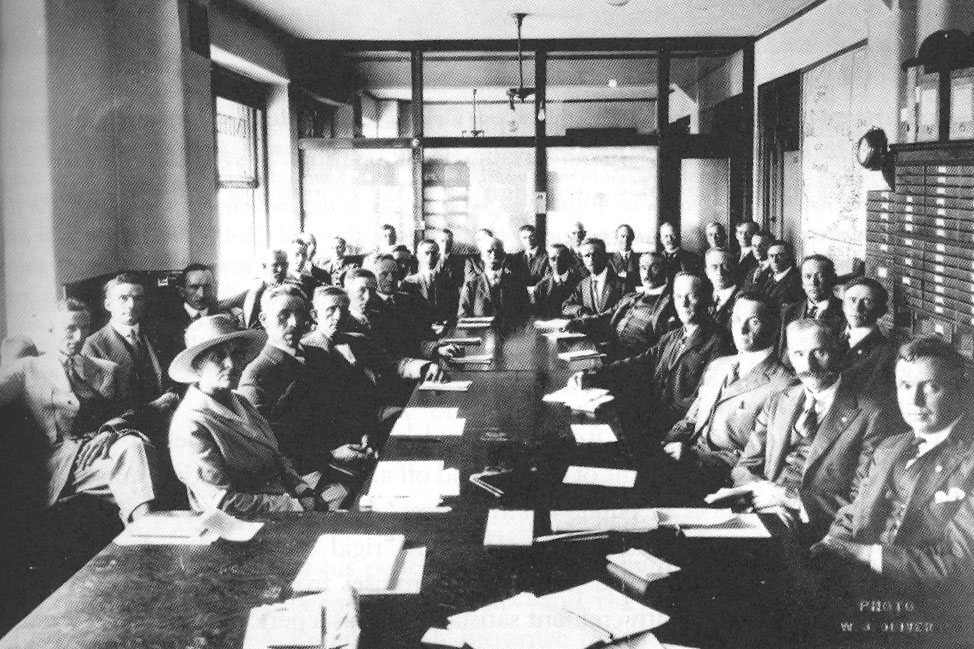Unless you’re an American or a New Zealander, you might wonder what on earth caucus means. BBC News recently went out onto the streets of London and the Big Apple and asked Brits what they thought caucus meant, and then New Yorkers to explain its meaning to their friends across the pond. The results, shown in the video here, were less than impressive …
Is it a plant or an animal? A poll or a vote? And even if you are American and you know what the noun means, you might find yourself wondering what “to caucus” means and whether it’s legit — since we’re hearing it a lot these days. The verb seems to be a new thing: is it actually a 21st-century phenomenon?
Here’s how the Oxford English Dictionary defines caucus the noun, dating it back to the mid-18th century in the U.S.: “A committee of members of a political party, esp. elected representatives, meeting regularly to determine policy, select candidates, etc.; a group or bloc of such members; the systemic exercise of political control through such committees.” The dictionary cites George Bernard Shaw, who talked about “mere politicians, the drudges of the caucus and the polling booth.”
The Online Etymology Dictionary gives us a colorful romp through caucus‘s suggested history and origins, dating the word back to 1763 specifically:
“Caucus (n.): “private meeting of party leaders,” 1763, American English (New England), perhaps from an Algonquian word caucauasu “counselor, elder, adviser” in the dialect of Virginia, or from the Caucus Club of Boston, a 1760s social & political club whose name possibly derived from Modern Greek kaukos “drinking cup.” Another old guess is caulker’s (meeting) [Pickering, 1816], but OED finds this dismissable.” (Glossophilia just wants to point out that whether the OED accepts his theory or not, John Pickering’s book in which he proposed this idea has the most fabulous name: “A Vocabulary, or Collection of Words and Phrases Which Have Been Supposed to be Peculiar to the United States of America”.)
So caucus the noun has been around for a good 250 years in American English, and it comes from good if uncertain stock. But what about its verb form? As the Los Angeles Times reported yesterday: “The pastor urged politicians to debate the issues but not attack their enemies, and called on churchgoers to caucus Monday night. At the University of Northern Iowa in Cedar Falls, Politico wrote that “one of two previously scheduled musical events – a mezzo-soprano concert—was moved back a day “so both to allow her audience and supporters to caucus, and so that she could caucus herself.” (Can you caucus on your own? — Ed.) It sounds very modern, that straw-polling verb. But although it’s younger than its cousin-noun, you might be surprised to learn its real age: the Online Etymology Dictionary dates the verb caucus to 1850, so it evolved only a century after its nominal forebear. But interestingly, caucusing — which sounds like a form (i.e. the gerund or present participle) of the root verb — is attested from 1788, long before caucus was anything other than a simple noun. So that’s a bit of a conundrum.
Here’s how William Gordon explained the word that still eludes our friends across the ocean:
The word caucus, and its derivative caucusing, are often used in Boston. The last answers much to what we stile parliamenteering or electioneering. All my repeated applications to different gentlemen have not furnished me with a satisfactory account of the origin of caucus. It seems to mean, a number of persons, whether more or less, met together to consult upon adopting and prosecuting some scheme of policy, for carrying a favorite point. [William Gordon, “History, Rise, Progress, and Establishment of the Independence of the United States of America,” London, 1788]
Other election words that might be unfamiliar to non-Americans are ticket, primary and Iowa. Please don’t ask me to explain that last one …
* * *

